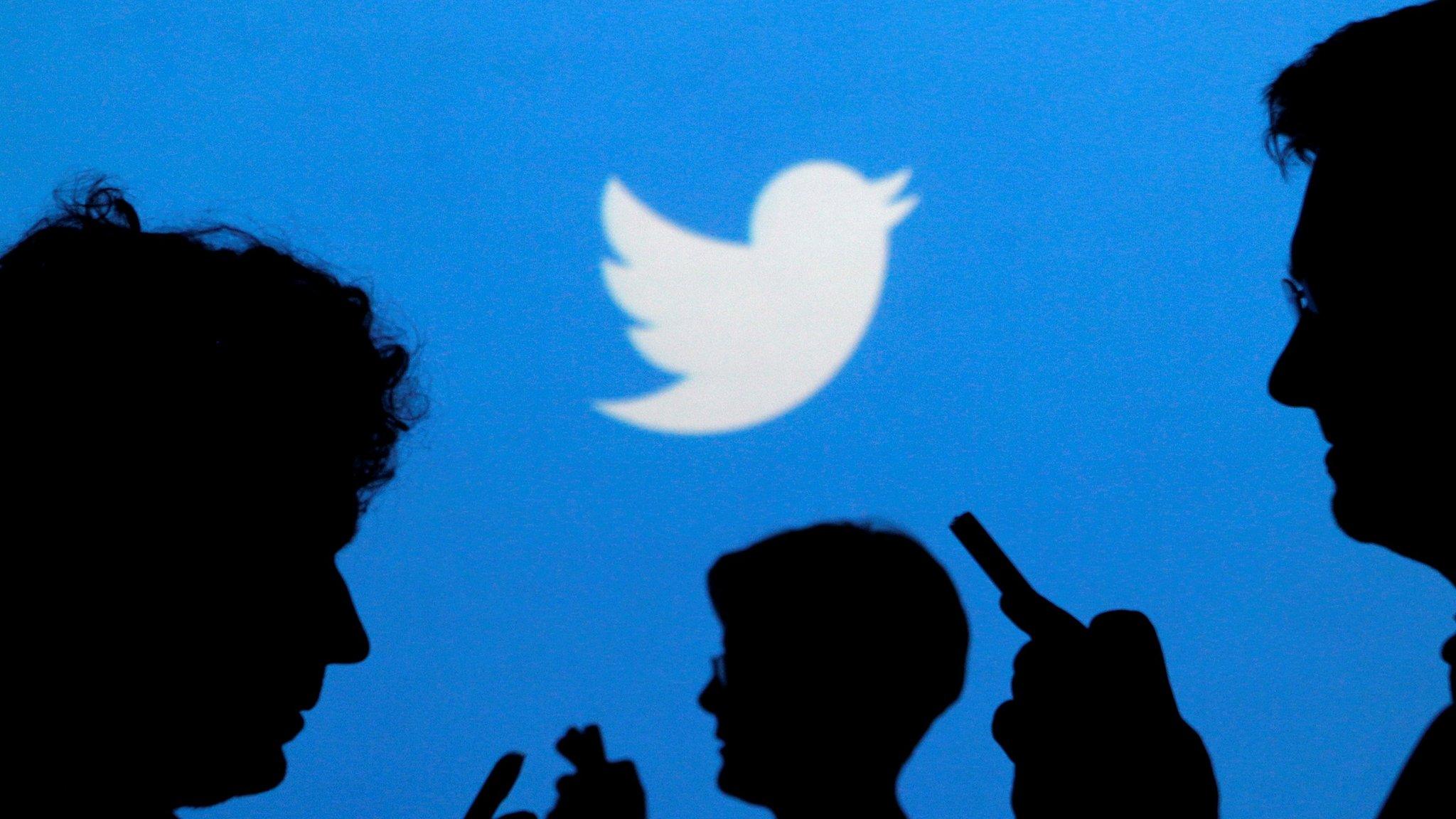Twitter banishes 'trolls' to the shadows
- Published

Twitter trolls' tweets will tumble down timelines
Twitter says it is taking action against "trolls" that "distort and detract from the public conversation", by making their tweets less visible.
The social network has been trying to tackle abuse and harassment on its platform for several years.
The company said it would now look at "behavioural signals" to "improve the health" of discussions on the platform.
"People contributing to the healthy conversation will be more visible in conversations and search," it said.
Twitter said examples of suspicious behaviour included:
accounts failing to confirm the email address they had signed up with
one person registering several accounts at the same time
a person repeatedly tweeting at people who did not follow them
taking part in co-ordinated attacks on another person
It said a "majority" of complaints made by its users concerned less than 1% of the total number of accounts on the service.
"These accounts have a disproportionately large - and negative - impact on people's experience on Twitter," the company said in a statement.
"The challenge for us has been: how can we proactively address these disruptive behaviours that do not violate our policies but negatively impact the health of the conversation."
Accounts exhibiting suspicious behaviours would now be "less visible" on the platform, it said, particularly in public conversations and search results.
"Because this content doesn't violate our policies, it will remain on Twitter, and will be available if you click on 'Show more replies' or choose to see everything in your search setting," it said.
The company said tests of the new system had resulted in fewer abuse reports being filed, suggesting people were having a "better experience".
The changes were announced on the day Facebook published figures, external for the first time detailing the scale of efforts to enforce its rules.
It said it had deleted or added warnings to about 29 million posts that had broken its rules on hate speech, graphic violence, terrorism and sex, during the first three months of the year.
- Published2 March 2018
